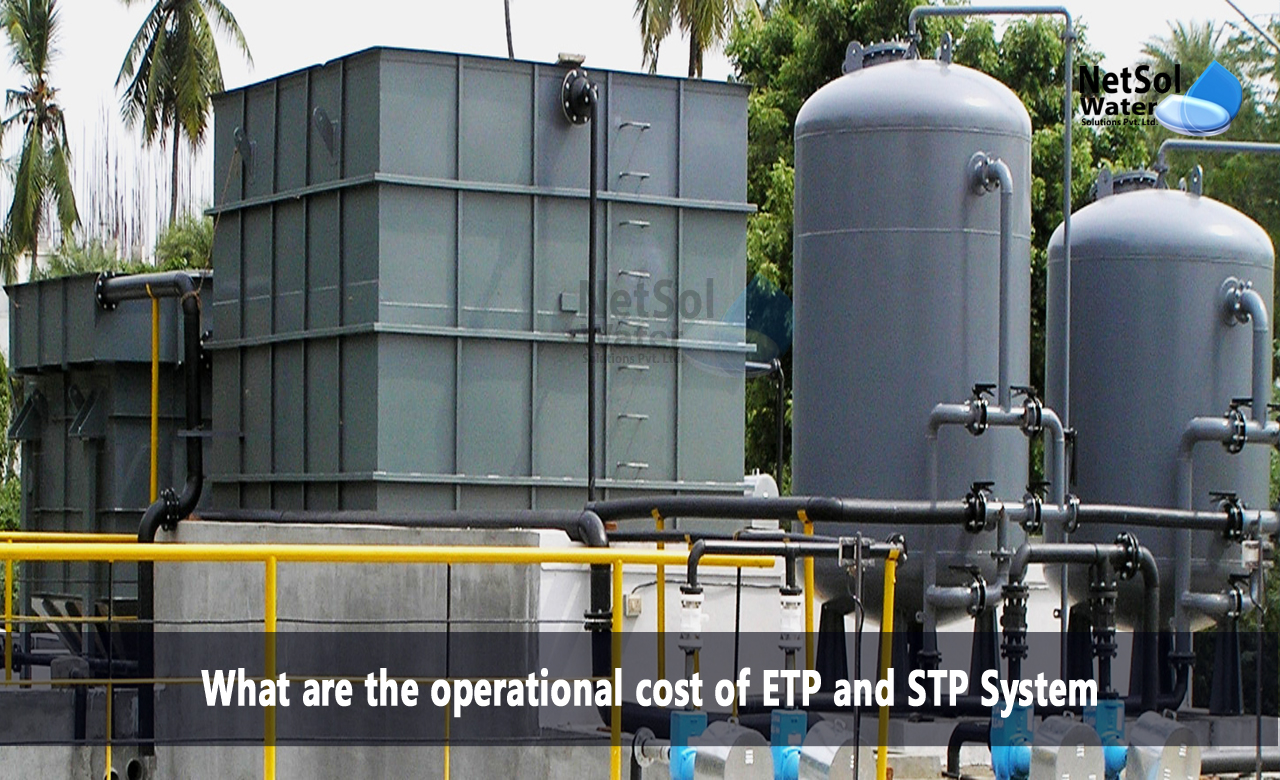What are the operational cost of ETP and STP System?
In the ultra-modern world, with the ever-growing challenge of environmental sustainability, industries and municipalities are taking good-sized steps in the direction of wastewater control. Two vital components of this technique are Effluent Treatment Plants (ETPs) and Sewage Treatment Plants (STPs). These structures are designed to treat wastewater, making it safe for discharge into the environment. However, one of the critical elements that impact the decision-making procedure when imposing ETP and STP structures is the operational prices related to them.
In this blog, we can discover the operational expenses of ETP and STP systems and what factors make contributions to their costs.
Energy Consumption
One of the primary operational expenses associated with ETP and STP systems is electricity consumption. Both forms of structures require strength to run diverse components, along with pumps, blowers, mixers, and aeration structures. The quantity of electricity needed can vary depending on the size of the plant and the treatment processes. Therefore, energy-green equipment and practices are essential to lessen those expenses. Implementing strength-saving technologies and optimising operational tactics can help mitigate electricity prices.
Labour and Maintenance
The day-to-day operation and upkeep of ETP and STP systems require skilled exertions. Qualified personnel are needed to monitor and control the structures, perform routine maintenance, and troubleshoot problems as they arise. Labour charges can be significant, in particular in more extensive remedy facilities. Adequately trained and inspired personnel can enhance performance, reduce downtime, and minimize operational costs in the end.
Chemicals and Consumables
Chemicals and consumables are essential for numerous methods inside these structures. ETPs commonly use chemical compounds for coagulation, flocculation, and disinfection, at the same time as STPs rely on chemical compounds for primary and secondary treatment steps. The price of these chemicals can vary based on the form of remedy and the volume of wastewater being processed. Additionally, consumables like clear-out media and membranes need regular substitutes, contributing to operational prices.
Sludge Handling and Disposal
Both ETPs and STPs generate sludge as a by product of the treatment process. Proper coping with, dewatering, and disposal of sludge are essential but may be expensive. The charges related to sludge management encompass transportation, remedy, and disposal prices. Some facilities may additionally explore opportunities to get better costs from sludge, inclusive of changing it into biogas or fertilisers, which could offset expenses.
Regulatory Compliance and Monitoring
Compliance with environmental policies and requirements is a critical issue of ETP and STP operation. This involves tracking and checking out effluent exceptional, preserving records, and reporting to the regulatory government. The charges associated with compliance can embody laboratory costs, trying out gadgets, and administrative tasks related to allowing programs and reporting.
Repairs and Capital Expenditures
Over time, ETP and STP systems will require maintenance and periodic device replacements. These capital fees can notably impact operational costs. Regular renovation can extend the lifespan of gadgets and reduce the frequency of highly-priced replacements. Careful making plans for capital expenses is essential to ensure the sustainability of the remedy plant.
Water Supply Costs
ETPs and STPs want a non-stop supply of water for various processes, which include dilution, backwashing, and cooling. The cost of procuring and treating this water can make contributions to operational prices. Reducing water usage via procedure optimisation and reuse can assist in lowering those costs.
Conclusion
Effluent Treatment Plants (ETPs) and Sewage Treatment Plants (STPs) are critical components of present-day wastewater management, making sure the protection of the surroundings and public fitness. However, they come with numerous operational prices that need to be cautiously controlled. By specializing in strength efficiency, professional hard work, chemical optimization, sludge management, regulatory compliance, and strategic capital-making plans, operators can reduce operational costs at the same time as retaining efficient and effective treatment techniques. Understanding those active prices is crucial for industries and municipalities committed to sustainable wastewater control in contemporary global.
Netsol Water is Greater Noida-based leading water & wastewater treatment plant manufacturer. We are industry's most demanding company based on client review and work quality. We are known as best commercial RO plant manufacturers, industrial RO plant manufacturer, sewage treatment plant manufacturer, Water Softener Plant Manufacturers and effluent treatment plant manufacturers. Apart from this 24x7 customer support is our USP. Call on +91-9650608473, or write us at enquiry@netsolwater.com for any support, inquiry or product-purchase related query.



